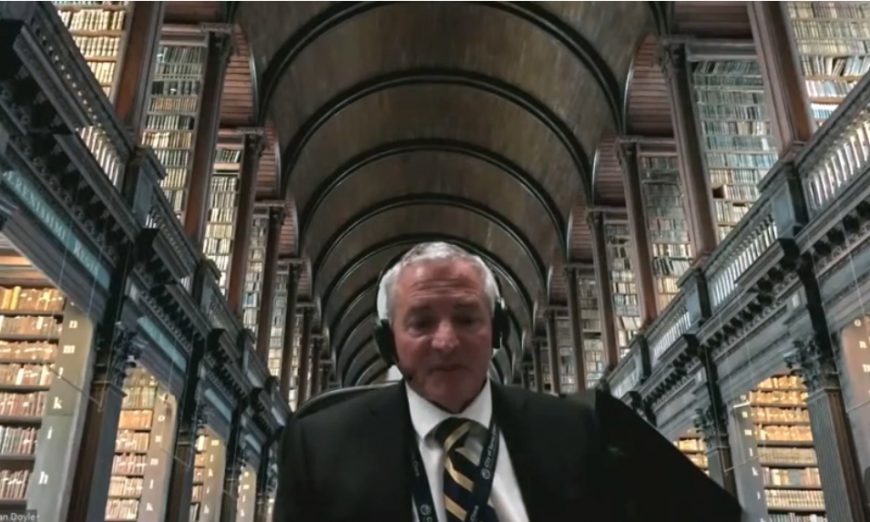Santa Clara City Attorney Sat On CVRA Lawsuit Settlement Offer That Likely Would Save City Millions

Five days after he received it, Santa Clara City Attorney Brian Doyle still hadn’t told the City Council about the $2.8 million settlement offer he received from plaintiffs in the 2018 California Voting Rights Act (CVRA) lawsuit judgment the City lost and was appealing.
Instead, he told the Council at its Dec. 15 meeting, “In terms of the closed session, no one has heard anything yet.” The only closed session item was the lawsuit.
In doing so, Doyle lost the City an opportunity to save more than $1 million that it will now have to pay for the $3.2 million 2018 award, interest and new legal fees that plaintiffs’ incurred because of the City’s appeal. San Jose Inside broke the story of the delay early Thursday morning. The offer was made a week before an appeals court hearing on the case, which the City also lost, and expired on Dec. 16 at 3 p.m.
Doyle May Face Legal Ethics Problems
His delay in informing the Council may put Doyle in trouble with the State Bar.
“If the settlement offer was not communicated to Council, it appears Doyle violated the California Rules of Professional Conduct,” wrote attorney J. Byron Fleck in an email. The rules state, “A lawyer shall promptly communicate to…[a] client… all amounts, terms, and conditions of any written offer of settlement made to the client in all other matters.”
Sanctions range from reproval to disbarment.
“It’s one matter to pursue the morally, legally and financially disastrous defense of the indefensible,” continued Fleck. “Doyle had repeatedly assured the Council that the City had a good chance of winning the appeal — as he had assured them of the City’s good prospects for winning the original case.
However, if the settlement offer was not communicated to the Council, as reported, he may have a pending issue with the State Bar. Obviously, this is very, very bad for the City and its residents.”
Doyle appears to know this because he said at the Dec. 8 meeting, “If the plaintiffs had made a settlement offer, I would be obligated to bring that into closed session.”
A Chronology of Obstruction
On Dec. 8 Councilmember Raj Chahal (District 2) asked that discussion of the CVRA case be put on the agenda for a closed session meeting.
Although Chahal didn’t say anything about withdrawing the appeal, Doyle told the Council that Councilmembers who had openly endorsed settling the case would open themselves to “common law”* conflict of interest if they acted to withdraw the appeal.
Doyle continued to argue that there was no reason for a closed session, at one point telling the Council he wouldn’t attend a closed meeting on the subject without having the subject and action pre-determined and publically announced.
It would be a serious ethical problem for him, Doyle said — “malpractice” — if he allowed them to set the closed session otherwise; even telling Councilmember Chahal that he, not the Council, controlled closed session agendas and accusing Chahal of ‘playing games
In the end, the closed session was scheduled for Dec. 15 — two days before the hearing and less than 24 hours before the offer expired.
However, as soon as the Dec. 15 meeting was called to order, a new delay emerged. Former Council candidate Bob O’Keefe informed the Council that the online agenda didn’t include information on how to get disability accommodation for attending meetings.
O’Keefe said that he noticed the omission while preparing his comments on a closed session item about the case.
A two-hour discussion followed about whether the meeting should be held at all, with Councilmember Kathy Watanabe proposing that the closed session be postponed until Wednesday — four hours after the settlement offer expired.
“It seems to me that someone has an interest in delaying discussion of the lawsuits,” said Councilmember Kevin Park. “I don’t think that’s in the best interest of the City.”
Doyle made no response and Mayor Lisa Gillmor stated that she understood the City Attorney to be saying that there were no time-sensitive matters.
Park disagreed. In addition to the fact that the court hearing was two days later, Park reported that the plaintiffs’ attorney, Robert Rubin, had contacted him.
“I was told this is time-sensitive,” Park said. “Knowing that there is new information out there, I think this issue needs to be discussed.”
“Why is the plaintiffs’ attorney contacting our Council when we’re about to go into closed session?” said Councilmember Kathy Watanabe. “Why doesn’t Robert Rubin contact our City Attorney?”
Doyle made no reply to that.
The Council subsequently voted 5-2 to hold the closed session, with and Councilmember Kathy Watanabe opposing.
Doyle didn’t respond to The Weekly’s request for a copy of Rubin’s offer letter, but details were confirmed by City Hall sources and the dates by Rubin himself.
*Black’s Law Dictionary defines common law as law resulting from judicial decisions instead of statutes and governing documents. Doyle didn’t state the judicial decisions ruling that elected officials have a conflicting interest if they take actions they promised while campaigning.

